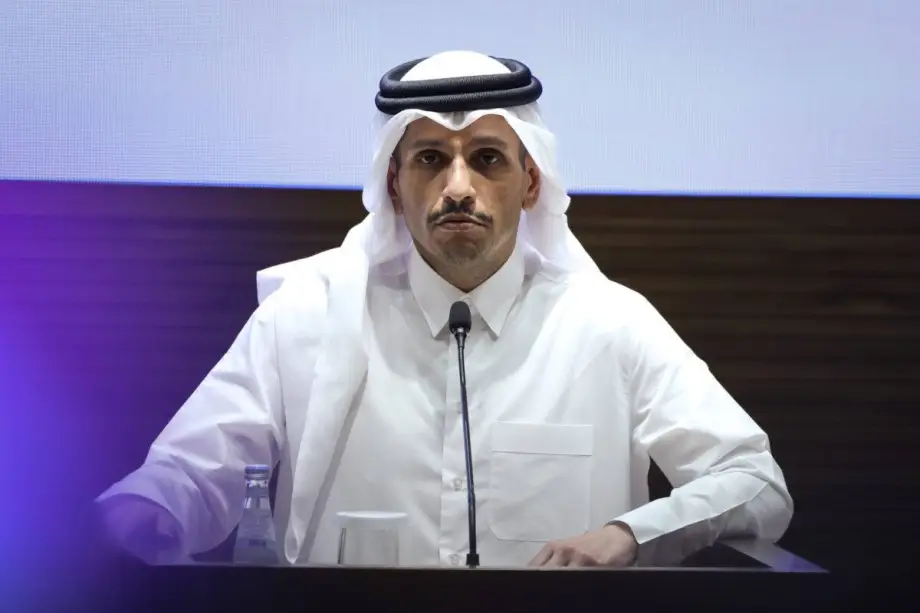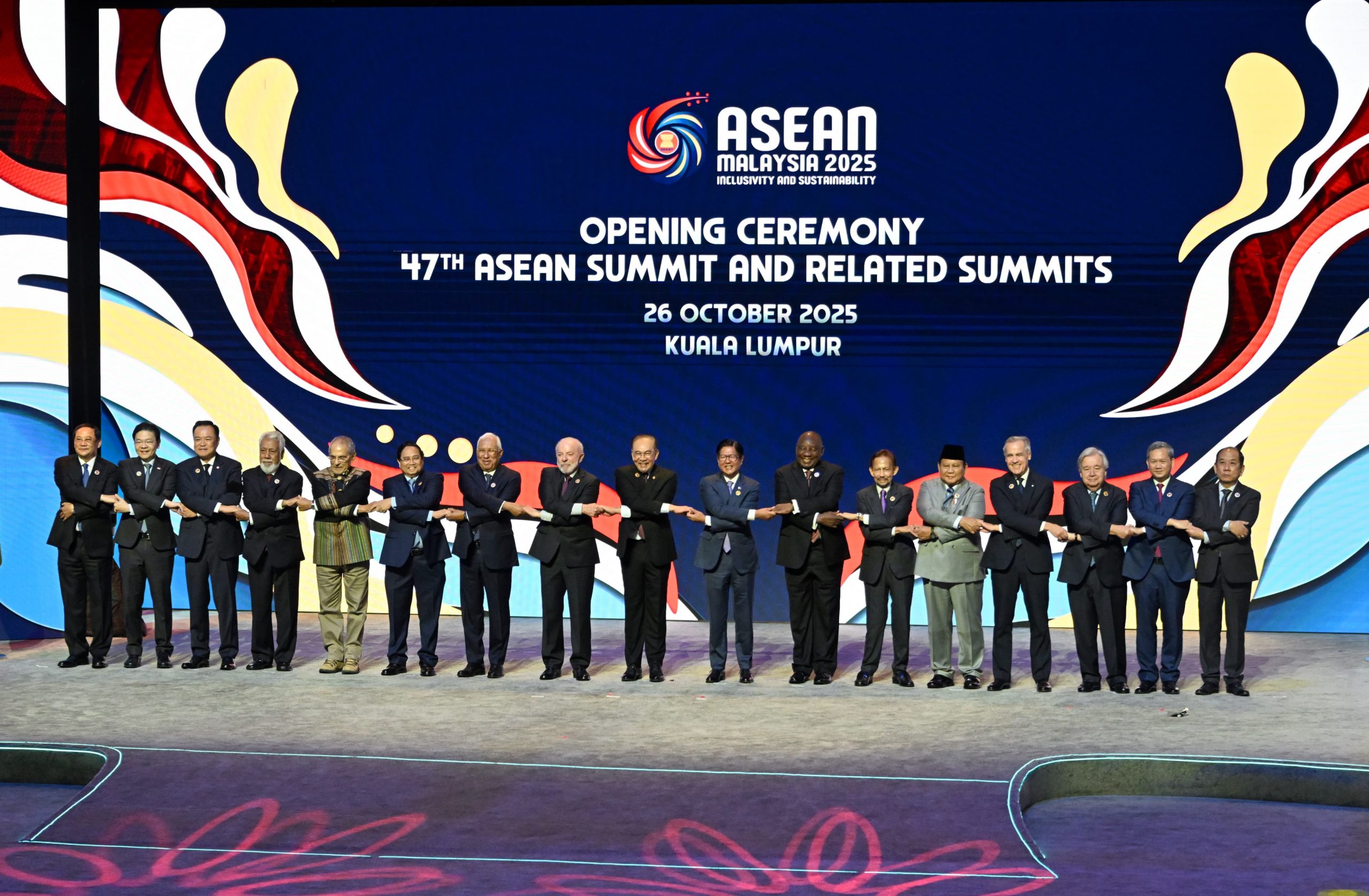Developing Story: An Israeli strike in Doha (9 Sept) targeted Hamas figures and killed six, sparking an extraordinary Arab-Islamic Summit (15 Sept). Leaders condemned the attack as a breach of sovereignty, warned that escalation could derail normalisation with Israel, and defended Qatar’s role as mediator. Beyond the rhetoric, Gulf states are now quietly questioning U.S. security guarantees — a shift that could push them to diversify defense ties with Turkey, China, or Russia.

Sheikh Mohammed bin Abdulrahman Al Thani, Qatar prime minister in Doha, Qatar on 17 April, 2024 [Murat Gök/Anadolu Agency]
On 9 September 2025, Israel carried out an airstrike in Doha that killed six people, including a Qatari security officer, and injured several others. The target: a meeting of Hamas political figures, some of whom survived. The strike landed just as U.S.-brokered ceasefire talks in Gaza were underway — a move widely read as undermining negotiations on Qatari soil.
The attack jolted Gulf diplomacy. Within days, leaders from the Arab League and the Organization of Islamic Cooperation convened in Doha for an extraordinary Arab-Islamic Summit on 15 September 2025 (Reuters). The message was clear: solidarity with Qatar, condemnation of the strike, and a warning that unchecked escalation would ripple far beyond Gaza.
Unified Condemnation
Leaders denounced the strike as a breach of sovereignty and international law, signalling rare unity across Arab and Islamic capitals. Draft resolutions circulated ahead of the summit used unusually sharp language against Israel (Reuters).
Normalisation at Risk
The attack was framed as a threat to ongoing normalisation agreements between Israel and Arab states. In plain terms: escalation could derail years of cautious diplomacy.
Qatar’s Mediator Role Defended
Doha reaffirmed its role as a mediator in Gaza, despite being targeted. Other leaders backed this stance, warning that striking a host country during negotiations sets a dangerous precedent.
Doubts About U.S. Protection
A quieter but equally significant theme: Gulf leaders questioned whether U.S. security guarantees still hold weight. When an ally’s capital can be struck so openly, the credibility of long-standing defense pacts comes under scrutiny (Washington Post).
Push for Accountability
Summit declarations called for international legal action and accountability measures, stressing that double standards in global responses to sovereignty violations erode trust (AP).
Security Diversification
Gulf states may accelerate moves to diversify defense ties beyond Washington, looking more seriously at partnerships with Turkey, China, or Russia.
Riskier Mediation Roles
The strike shows how hosting negotiations can invite retaliation. Yet mediation remains essential — a paradox Gulf states must now navigate.
Fragile Normalisation
Peace deals rest on trust and stability. This episode exposes how fragile those foundations remain.
ASEAN’s Watchful Eye
For ASEAN, the lesson is stark: sovereignty and mediator protection are non-negotiable norms. Any erosion of these standards in the Gulf could embolden similar breaches elsewhere.
The Doha summit may prove to be more than crisis management. It is a moment when Gulf leaders are re-evaluating their security architecture, the durability of normalisation, and the credibility of U.S. protection. For ASEAN, it is a reminder that in an age of shifting power balances, the principles of sovereignty and diplomacy are only as strong as the coalitions willing to defend them.
(Developing Story: Gulf States Reassess Security Posture after Doha Strike)

StashAway’s entry into the UAE isn’t just a business expansion. It reflects a shift in how wealth is being understood in the region.

The 47th ASEAN Summit in Kuala Lumpur from 26–28 October 2025 marked a pivotal moment for Southeast Asia. With East Timor’s historic entry as ASEAN’s 11th member, an upgraded ASEAN-China Free Trade Agreement, and renewed engagement from major powers, the summit reflected both opportunity and strain. The question now is whether ASEAN’s long-standing unity can hold amid global polarisation and rising protectionism.

First Abu Dhabi Bank (FAB) is deepening its role as the financial bridge between the Gulf and Asia. At the second edition of the Middle East–Asia Summit in Singapore, FAB convened over 250 policymakers, investors, and business leaders to discuss how trade, innovation, and sustainability can shape a new era of cross-regional growth.